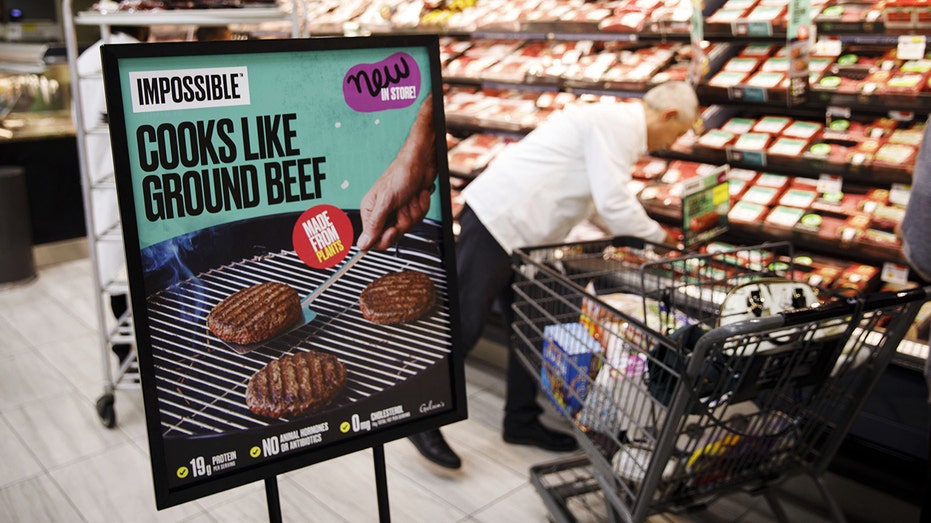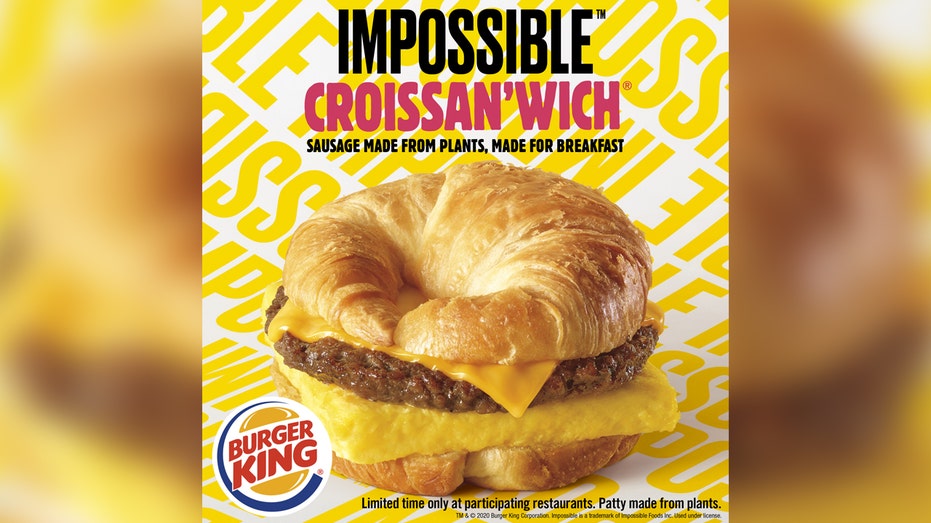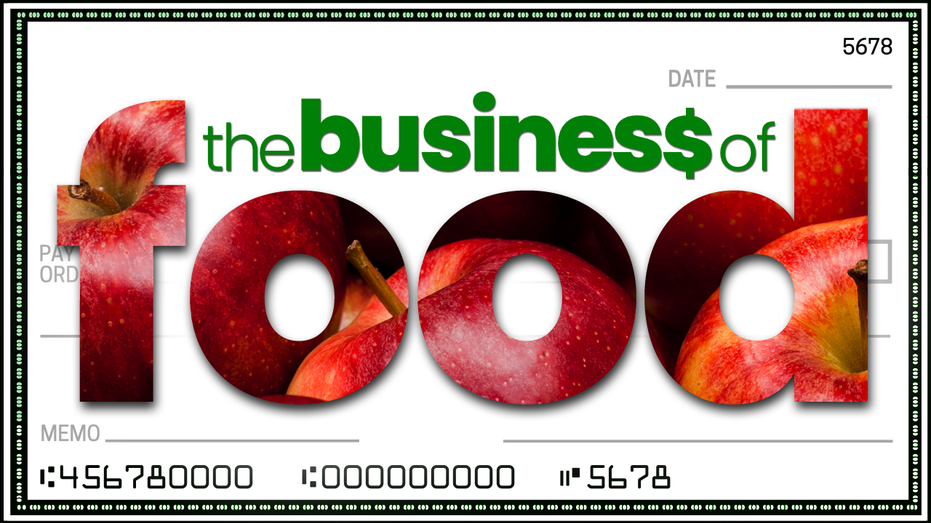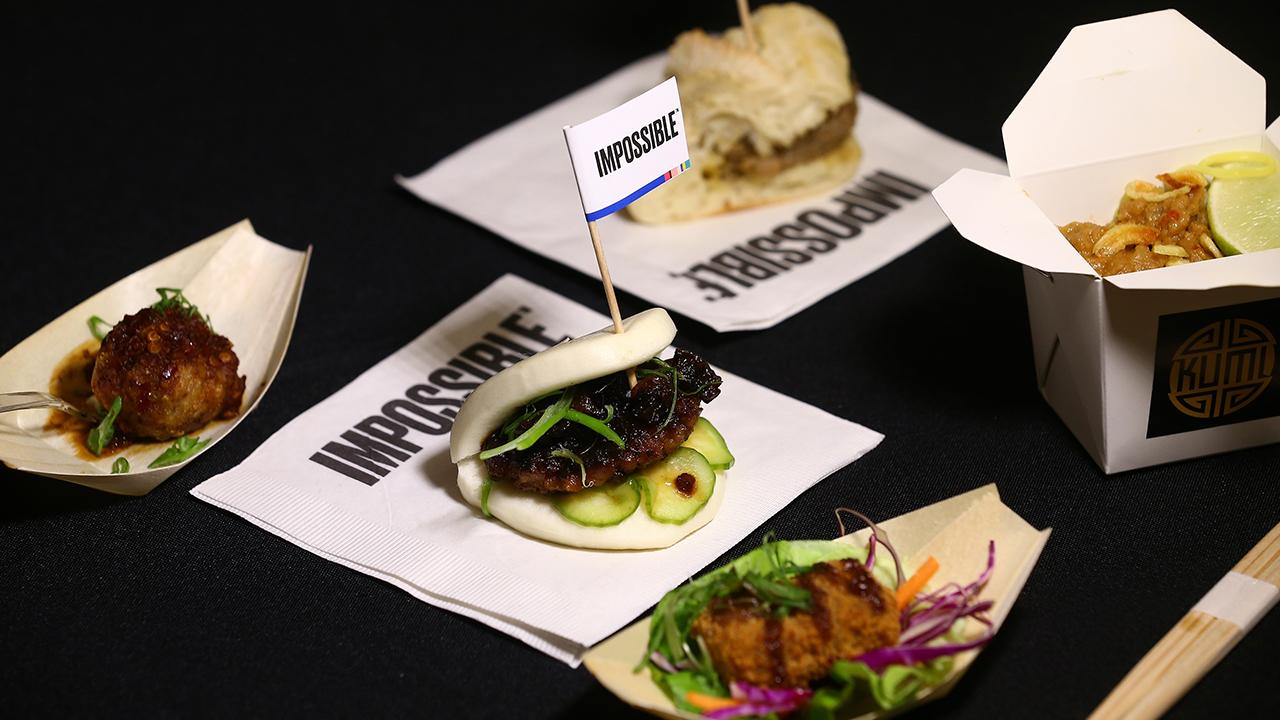Impossible Foods debuts plant-based pork
Product has 'umami richness without being gamey or overpowering,' company says
The makers of the Impossible Burger are making meatless pork possible.
Impossible Foods, the Redwood City, California-based startup known for its meatless burger seen in grocery stores and fast-food chains like Burger King, announced the launch of Impossible pork Monday. The meat substitute is made to mimic the look, taste and texture of ground pork. And with pork prices increasing in recent months amid a deadly pig disease in Asia that's depleting global meat supplies, the company aims to give consumers a more accessible alternative.

Impossible Foods Inc. is debuting a plant-based pork alternative. (Patrick T. Fallon/Bloomberg via Getty Images).
IMPOSSIBLE FOODS CEO: WHY CES IS 'PERFECT PLACE' TO DEBUT NEW PRODUCT
"Overall our goal has always been to completely replace animals as a food technology by figuring out how to create meat products that do a better job serving consumer needs," Impossible Foods CEO Pat Brown told FOX Business. "We want to focus on making a product that delivers all the sensory pleasures that people want from pork that has a better nutritional profile."

Impossible Foods CEO Pat Brown. (Impossible Foods)
Impossible Foods describes its plant-based pork as having "umami richness without being gamey or overpowering." It contains 16 grams of protein, 13 grams of fat, 6 grams of saturated fat and 220 calories for a 4-ounce serving. To compare, the same serving size of regular, cooked pork contains 30 grams of protein, 16 grams of fat, 5.5 grams of saturated fat and 270 calories.
BEYOND MEAT COMPETITOR IMPOSSIBLE FOODS BEEFING UP PLANT-BASED MEAT MARKET IN CHINA
The pork alternative, made for kosher and halal certification, can be charbroiled, grilled, sautéed, steamed or baked in the oven. It can be subbed in for just about any recipe that calls for pork -- from dumplings and spring rolls to meatballs, pizza, kielbasa links, breakfast sausage patties and stir-fry, the company said.
Impossible Foods is teaming up with Burger King to launch an Impossible sausage breakfast sandwich in select markets around the country before it expands nationwide. The company already has products in China, where over 60 percent of consumers eat pork as their daily meat intake, according to Bloomberg. Exports of pork from the U.S. will see 12 percent growth in 2019, and 13 percent growth in 2020.

Burger King's new Croissan'wich features the meatless Impossible sausage. (Burger King)
Scale, Brown said, is the company's biggest challenge for 2020.
"The scale of the global meat industry is huge and by comparison, Impossible Foods is minuscule. We have a huge scaling challenge ahead," Brown said. "The ultimate goal is to replace the entire animal-based food industry which basically means we have to, on average, double for the next 15 years in terms of our production scale, but it's totally doable."
| Ticker | Security | Last | Change | Change % |
|---|---|---|---|---|
| BYND | BEYOND MEAT INC. | 0.73 | +0.06 | +9.43% |
Impossible Foods and Beyond Meat have led the charge in the plant-based foods market as more eaters look to cut back on their consumption of animal products. Indeed, retail sales of plant-based foods have grown more than 11 percent in the past year, bringing the total market value to over $4.5 billion, according to the Plant-Based Foods Association. The total U.S. retail food market has grown just 2 percent in dollar sales during the same period, suggesting that alternative meat has major staying power beyond a fleeting food trend.
Impossible Foods would not reveal how much its Impossible pork will cost consumers, but the company's Chief Financial Officer David Lee told FOX Business it will be competitively priced.
Consumer concern over the impact the meat industry has on the environment continues to drive the alternative meat industry into mainstream supermarkets, restaurants and fast-food chains. Sales of plant-based meats in the U.S. reached $946.6 million, up nearly 11 percent compared to 2018, according to Nielsen data. And the market for lab-grown or plant-based meat is forecast to reach $140 billion in the next decade and could claim 10 percent of the $1.4 trillion meat market, according to analysts at Barclays.
Some of the biggest food producers in America have invested in plant-based meat options, including Tyson Foods Inc., Nestle, Kellogg Co. and Heinz Co.
Brown says Impossible Foods is working on a technology platform for dairy alternative products and prioritizing alternatives to fish and seafood for future food innovations.

The Business of Food explores the rapidly changing $1.5 trillion food industry every Tuesday on FOX Business.




















